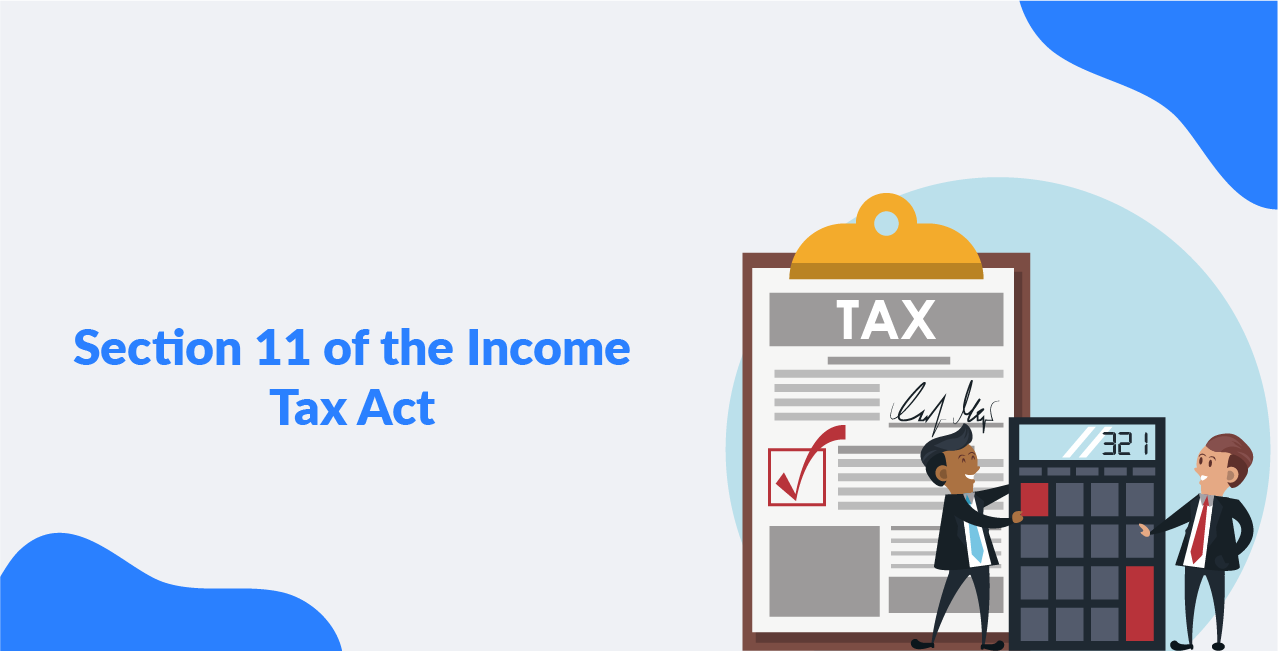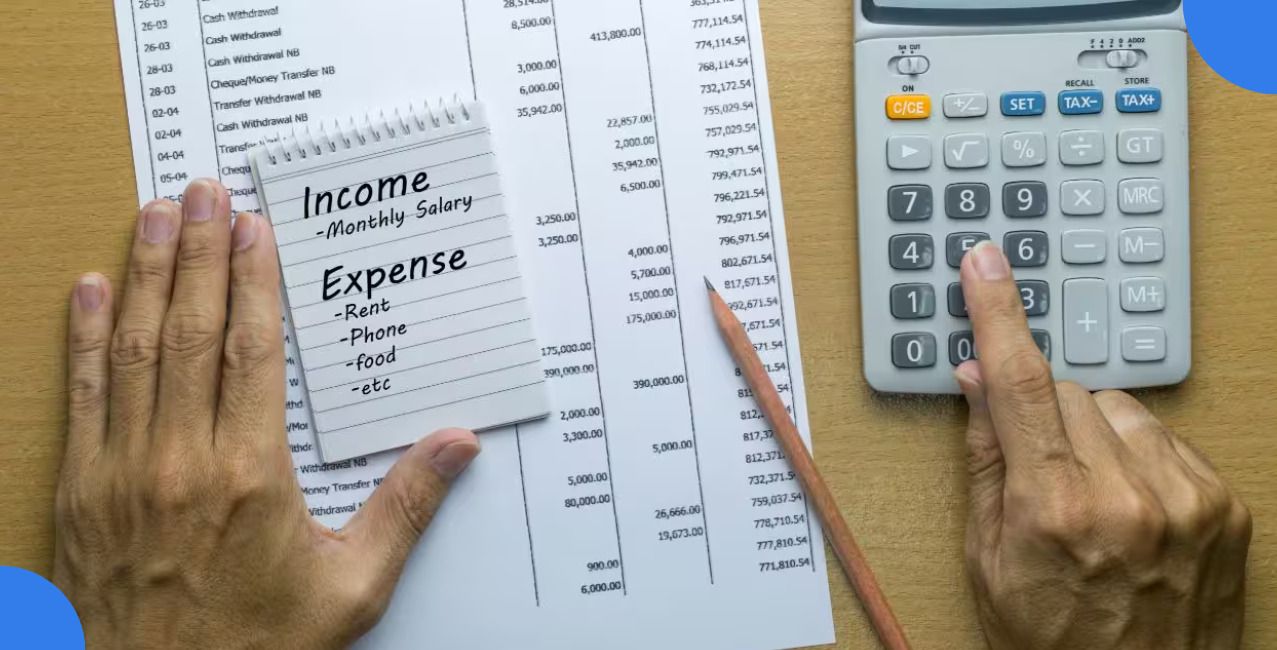Section 11 of the Income Tax Act – Exemption for Charitable Trusts

Check Your Loan Eligibility Now
By continuing, you agree to LoansJagat's Credit Report Terms of Use, Terms and Conditions, Privacy Policy, and authorize contact via Call, SMS, Email, or WhatsApp
Arun has a trust that helps poor kids with education. In Section 11, the income (such as donations or rent) of his trust can go tax-free as long as it is utilised for charity.
Key Rules:
- Condition: Income must be used only for charity/religion.
- Investment Rule: Extra money must be invested in govt-approved ways (e.g., bonds, funds).
Example Table:
Should Arun spend ₹50,000 on personal reasons, then such an amount is taxable.
Importance of Section 11 of the Income Tax Act
Arun operates a non-governmental organisation on free meals to homeless individuals. Section 11 assists his NGO in avoiding paying taxes, so more funds are channelled to charity.
Why is Section 11 Important?
- Encourages Charity: Tax exemption means more funds for good causes.
- Supports Trusts/NGOs: Helps schools, hospitals, and temple places which can operate smoothly.
- Strict Rules: Ensures money is only used for charity, not personal gain.
Example Table: Arun’s NGO (FY 2024-25)
- Key Rule: If Arun uses ₹1.00.000 for a personal trip, that amount is taxable.
- Benefit: Without Section 11, Arun’s NGO would pay 30% tax, leaving less for the needy.
Section 11 makes sure that more money is used to benefit society rather than the government.
Objectives of Section 11 of the Income Tax Act
Arun runs a trust under which schools are constructed in villages. His trust benefits under section 11, which assists in concentrating on education as opposed to paying taxes.
Read More – Characteristics of the Good Tax System – Key Features Explained
Key Objectives of Section 11:
- Promote Charity: Encourages people to donate to trusts/NGOs by offering tax benefits.
- Support Social Work: Helps trusts use all their income for good causes like education, healthcare, or religion.
- Prevent Misuse: Ensures money is only spent on charity, not personal expenses.
Example Table:
- Important Rule: If Arun spends ₹50,000 on a family vacation, that amount is taxed.
- Result: More money for schools, less tax burden.
Section 11 makes sure that charity rises, but not taxes.
TDS Rules Under Section 11
Arun has an educational trust where the donations are received and interest earned on fixed deposits. He wants to know whether the income of his trust has any TDS on it.
Key TDS Rules for Trusts (Section 11):
- Donations: No TDS on donations received by the trust (people/businesses give money without cutting tax).
- Interest Income: Banks deduct 10% TDS on fixed deposit interest (but the trust can claim a refund if exempt under Section 11).
- Rent Income: If the trust earns rent above ₹2.4 lakh/year, the tenant deducts 10% TDS.
- Salary Payments: If the trust pays salaries, it must deduct TDS as per normal income tax rules.
Example Table:
Important Note: In the case of Arun, ITR will be filed so as to recover the TDS in case the income of the trust is TDS-free in accordance with Section 11.
Tax Exemption Rules Under Section 11
Arun has a charitable trust that offers free medical camps in rural areas. He wants to be informed how he can get his trust tax-exempt under Section 11.
Key Exemption Rules:
- 100% Tax-Free: All income (donations, rent, interest) is tax-free if used only for charity.
- Must Spend 85%: Each year, the trust must spend at least 85% of its income on charitable work.
- 15% Can Be Saved: Up to 15% can be kept for next year, but it must be invested properly.
- No Personal Use: Money used for personal needs is fully taxable.
Example Table:
Important: Arun must file ITR to claim exemption, even if no tax is due.
Due Date and Compliance for Section 11 Trusts
- Arun's Trust runs free coaching classes. To keep tax benefits, he must follow the rules:
- ITR Filing: Submit Income Tax Return by 31st July each year (or 30th Sept if audit needed).
- Audit Requirement: Audit accounts if income exceeds ₹5,00,000 (done by a Chartered Accountant).
- Bookkeeping: Maintain proper records of all donations and expenses.
- 85% Spending Rule: Must spend 85% of income on charity within the year (or next year).
- Form 10B: Submit this form with the ITR to prove charitable activities.
When Arun fails to meet deadlines or violates rules, his trust may become subject to taxation with penalties.
How Section 11 Works in Real Life
- Arun's Animal Shelter rescues street dogs. Here's how Section 11 helps:
- Donations: People give ₹5,00,000 - no tax when used for dog food and medicines.
- Rent Income: Earns ₹2,00,000 from trust property - tax-free if spent on shelter repairs.
- Bank Interest: Gets ₹50,000 - tax-free after filing return.
- Rules: Arun must spend ₹5,95,000 (85%) this year on dogs.
- Mistake: If Arun uses ₹1,00,000 for car EMI, that amount becomes taxable.
To retain his tax-free status, Arun files before the 31st of July.
Conclusion
Section 11 of the Income Tax Act assists good causes such as the animal shelter of Arun by saving tax money. The amount that people donate to Arun's trust and the amount received when he gets rent on trust property remain debt-free to the extent that it is well-utilised in the direction of benefiting animals.
Also Read - Smart Tax-Saving Strategies for Salaried Individuals
The best Arun can do is follow some easy rules, spend the majority of the amount every year on charity work, maintain good records and make the tax returns on schedule.
In this manner, instead of taxes, more money can be used to feed and take care of the street dogs. Such trusts are good since they can assist society, and the government assists them, but the government does not approve of how they are utilising the money as long as it is not done truthfully.
FAQs
1. What is Section 11?
Section 11 gives tax exemption to charitable/religious trusts if they use their income only for charity.
2. Who can claim this exemption?
Registered trusts/NGOs working in education, health, religion, or other charitable causes.
3. What income is tax-free?
Donations, rent, interest—all tax-free if spent on charity.
4. How much must be spent on charity?
At least 85% of income must be used for charitable work each year.
5. Can unused money be saved?
Yes, 15% can be kept for next year, but it must be invested properly.
6. What happens if money is misused?
Any personal use makes that amount taxable, and the trust may lose its exemption.
7. Is an audit required?
Yes, if income exceeds ₹5,00,000, a CA must audit the accounts.
8. When to file ITR?
By 31st July (or 30th Sept if an audit is needed).
9. What is Form 10B?
A form to prove charitable activities must be filed with the ITR.
10. Can trusts get TDS refunds?
Yes, if tax was deducted on exempt income (like donations), file ITR to claim a refund.
Other Related Pages | |||
About the author

LoansJagat Team
Contributor‘Simplify Finance for Everyone.’ This is the common goal of our team, as we try to explain any topic with relatable examples. From personal to business finance, managing EMIs to becoming debt-free, we do extensive research on each and every parameter, so you don’t have to. Scroll up and have a look at what 15+ years of experience in the BFSI sector looks like.
Subscribe Now
Related Blog Post

Salaried vs. Self-Employed: Who Gets a Personal Loan Faster in 2025?

Too Many EMIs? What to Do When Monthly Payments Become Unmanageable

Post Office Customer Care Number: Helpline & Support
Recent Blogs
All Topics
Contents
Quick Apply Loan
Consolidate your debts into one easy EMI.
Takes less than 2 minutes. No paperwork.
10 Lakhs+
Trusted Customers
2000 Cr+
Loans Disbursed
4.7/5
Google Reviews
20+
Banks & NBFCs Offers
Other services mentioned in this article





